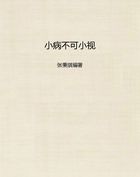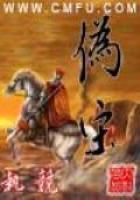For it has been already shown that nothing the sovereign representative can do to a subject,on what pretence soever,can properly be called injustice or injury;because every subject is author of every act the sovereign doth,so that he never wanteth right to any thing,otherwise than as he himself is the subject of God,and bound thereby to observe the laws of nature.And therefore it may and doth often happen in Commonwealths that a subject may be put to death by the command of the sovereign power,and yet neither do the other wrong;as when Jephthah caused his daughter to be sacrificed:in which,and the like cases,he that so dieth had liberty to do the action,for which he is nevertheless,without injury,put to death.
And the same holdeth also in a sovereign prince that putteth to death an innocent subject.For though the action be against the law of nature,as being contrary to equity (as was the killing of Uriah by David);yet it was not an injury to Uriah,but to God.Not to Uriah,because the right to do what he pleased was given him by Uriah himself;and yet to God,because David was God's subject and prohibited all iniquity by the law of nature.Which distinction,David himself,when he repented the fact,evidently confirmed,saying,"To thee only have I sinned."In the same manner,the people of Athens,when they banished the most potent of their Commonwealth for ten years,thought they committed no injustice;and yet they never questioned what crime he had done,but what hurt he would do:nay,they commanded the banishment of they knew not whom;and every citizen bringing his oyster shell into the market place,written with the name of him he desired should be banished,without actually accusing him sometimes banished an Aristides,for his reputation of justice;and sometimes a scurrilous jester,as Hyperbolus,to make a jest of it.
And yet a man cannot say the sovereign people of Athens wanted right to banish them;or an Athenian the liberty to jest,or to be just.
The liberty whereof there is so frequent and honourable mention in the histories and philosophy of the ancient Greeks and Romans,and in the writings and discourse of those that from them have received all their learning in the politics,is not the liberty of particular men,but the liberty of the Commonwealth:which is the same with that which every man then should have,if there were no civil laws nor Commonwealth at all.And the effects of it also be the same.For as amongst masterless men,there is perpetual war of every man against his neighbour;no inheritance to transmit to the son,nor to expect from the father;no propriety of goods or lands;no security;but a full and absolute liberty in every particular man:so in states and Commonwealths not dependent on one another,every Commonwealth,not every man,has an absolute liberty to do what it shall judge,that is to say,what that man or assembly that representeth it shall judge,most conducing to their benefit.But withal,they live in the condition of a perpetual war,and upon the confines of battle,with their frontiers armed,and cannons planted against their neighbours round about.The Athenians and Romans were free;that is,free Commonwealths:not that any particular men had the liberty to resist their own representative,but that their representative had the liberty to resist,or invade,other people.There is written on the turrets of the city of Luca in great characters at this day,the word LIBERTAS;yet no man can thence infer that a particular man has more liberty or immunity from the service of the Commonwealth there than in Constantinople.Whether a Commonwealth be monarchical or popular,the freedom is still the same.
But it is an easy thing for men to be deceived by the specious name of liberty;and,for want of judgement to distinguish,mistake that for their private inheritance and birthright which is the right of the public only.And when the same error is confirmed by the authority of men in reputation for their writings on this subject,it is no wonder if it produce sedition and change of government.In these western parts of the world we are made to receive our opinions concerning the institution and rights of Commonwealths from Aristotle,Cicero,and other men,Greeks and Romans,that,living under popular states,derived those rights,not from the principles of nature,but transcribed them into their books out of the practice of their own Commonwealths,which were popular;as the grammarians describe the rules of language out of the practice of the time;or the rules of poetry out of the poems of Homer and Virgil.And because the Athenians were taught (to keep them from desire of changing their government)that they were freemen,and all that lived under monarchy were slaves;therefore Aristotle puts it down in his Politics "In democracy,liberty is to be supposed:for it is commonly held that no man is free in any other government."And as Aristotle,so Cicero and other writers have grounded their civil doctrine on the opinions of the Romans,who were taught to hate monarchy:at first,by them that,having deposed their sovereign,shared amongst them the sovereignty of Rome;and afterwards by their successors.And by reading of these Greek and Latin authors,men from their childhood have gotten a habit,under a false show of liberty,of favouring tumults,and of licentious controlling the actions of their sovereigns;and again of controlling those controllers;with the effusion of so much blood,as I think I may truly say there was never anything so dearly bought as these western parts have bought the learning of the Greek and Latin tongues.















